Ways You Unknowingly Sabotage Your Partner’s Diet
Share the post
Share this link via
Or copy link

Source: Nicolas Menijes / EyeEm / Getty
Your partner may have more of an impact on your life than you realize, particularly if you carry extra weight. Research has found that it’s very common for overweight individuals in a relationship to model their partner’s eating and exercise habits. This copycat syndrome wasn’t found to be prevalent among couples with healthy or average body weights. So if you and your partner have been struggling for years to lose weight, it’s worth exploring whether or not you’re enabling one another. During this pandemic, if you and your partner are both staying at home, then you’re likely having all of your meals together, and your habits influence one another’s more than usual. So it’s especially important to pay attention to how you encourage or discourage, each other’s behaviors.
Should your partner say that he’d like to try to lose weight, you like to think you’d be supportive. And, in your conscious mind, you probably are. But, it can actually be quite difficult for the unconscious mind to witness great change. While you may think, “Of course I’m happy for my partner if he loses weight,” deep down, you may fear that that one change will trigger others. And you may unconsciously sabotage your partner’s diet. But, if you love your partner, you want him to stick around as long as possible, and since a healthy weight is important to overall health, you should try to encourage his progress. Here are ways you may be sabotaging your partner’s diet.
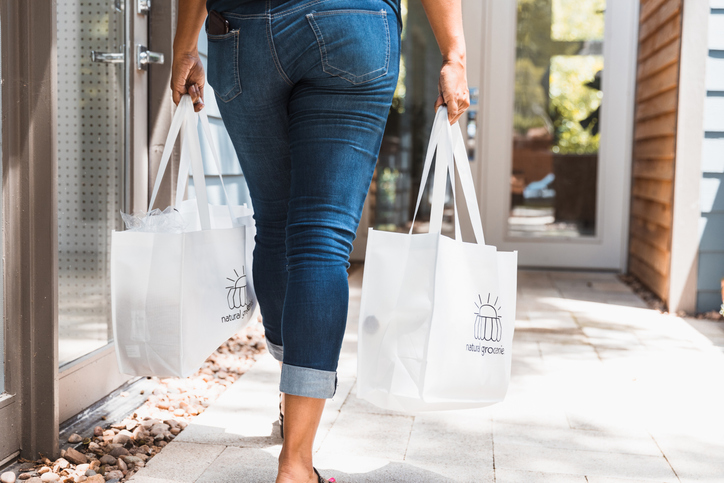
Source: SDI Productions / Getty
Irritation over having to shop differently
If you live with your partner, then you may find he has special requests for grocery shopping. He now wants sorbet instead of cookie dough ice cream. Or whole wheat tortillas instead of white ones. He asks that you bring home no chips or cookies. If you roll your eyes, and make a fuss, making it seem like shopping in this new way is a huge hassle, your partner may give up on trying.
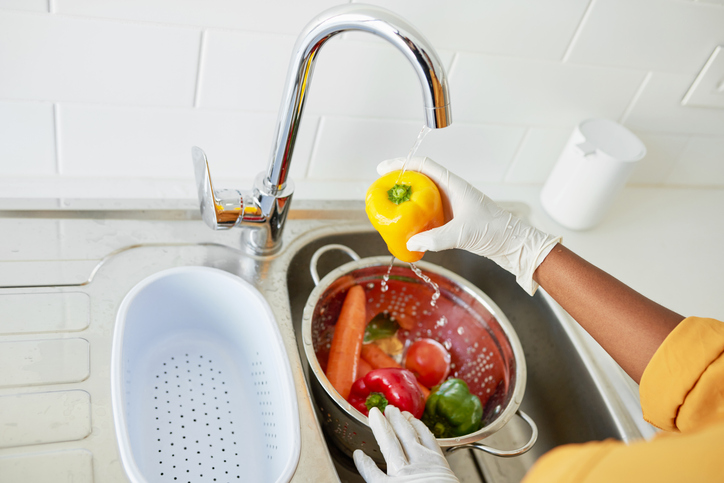
Source: LaylaBird / Getty
Irritation over having to cook differently
Love MadameNoire? Get more! Join the MadameNoire Newsletter
We care about your data. See our privacy policy.
You might also show irritation over having to cook a different way. Your partner may request that you switch from butter to olive oil for that recipe. Or that you cut the actual noodles in half in a pasta dish, and supplement with more vegetables. Again, if you huff and puff and make it seem like a huge inconvenience, you make it hard for your partner to stick to his plans.

Source: Georgijevic / Getty
Linking food to emotions
Saying things like, “You don’t eat this anymore? But this is the food we fell in love over! We had it on our first date!” or “We always eat this food during this holiday together” or “This is our comfort food. I’m supposed to eat it alone now?” isn’t helpful. Food does not need to be linked to feelings. You can have bonding experiences, regardless of the food you’re eating. So don’t make your partner fear that you can’t.

Source: lisegagne / Getty
Buying his favorite treats “to be nice”
Maybe one of your love languages is food, or buying gifts, or both – buying food gifts. You’re so used to picking up your partner’s favorite candy or frozen pizza, whenever you see it. The trouble with that is that you make him feel bad rejecting the treats because he feels like he’s rejecting your love. If you want to bring home a gift, bring home fresh fruit or something else that’s healthy.
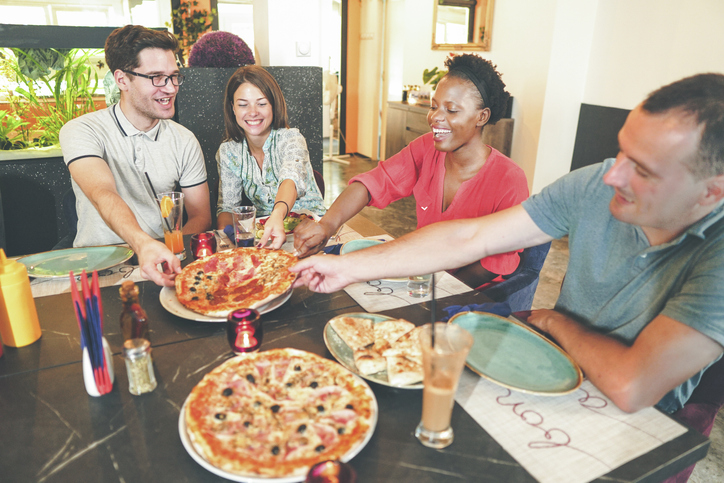
Source: Viktorcvetkovic / Getty
Making him feel like an outsider
When it’s time to get together with friends, you loudly proclaim, “We can’t go to that restaurant because my partner is on a diet.” Or, if friends are having you over for a meal, you call them and list all of the things they can’t make, because your partner is on a diet. You make him feel like the odd man out, who is causing everyone else to suffer.

Source: Hirurg / Getty
Being down on your habits
Maybe seeing your partner make better choices is making you feel bad about yours. If that’s the case, perhaps you should be assessing your own eating habits, rather than projecting onto him, and saying, “Well now you’re making me feel bad about my nachos because you’re having a salad.” He can’t be held responsible for your feelings about your body and your food choices. That’s too much pressure. And think of what you’re suggesting: that he should stay overweight to make you feel better about your bad choices.
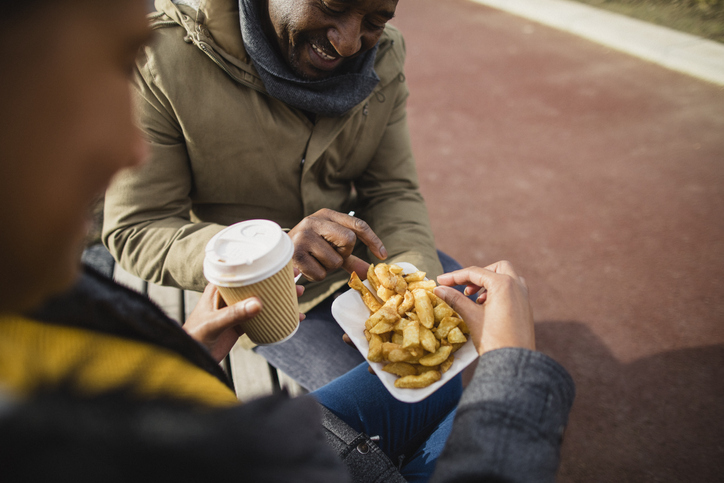
Source: SolStock / Getty
Tempting him
“Come on, you can have one slice of pizza.” “You can afford one cookie.” “It’s just a tiny bowl of ice cream.” If he’s said no, then simply respect that. It’s not really about the one cookie or the one slice of pizza. He is practicing will power, and you should encourage that, rather than try to derail that.

Source: martinedoucet / Getty
Mocking his meal
When he makes a healthy choice, you mock it. You say that you don’t know how someone could fill up on that. You say it looks like rabbit food. You say it looks gross. You say that’s what your model friend who barely eats orders. You don’t let him enjoy his meal in peace. Look, he’s already thinking some of those things – he doesn’t need you reminding him. He needs encouragement.

Source: Juan Algar / Getty
Asserting he’s getting too good for you
You make statements about him getting too good for you, or about how, when he gets into great shape, he’ll leave you for someone hotter. You claim that you see him sneering at your food, and judging your food choices. It’s most likely that you are fearing those things, and projecting onto him, rather than those things being true.

Source: Vladimir Vladimirov / Getty
Every day is a reason to cheat
“We’re on vacation.” “It’s Friday.” “You’ve had a bad day.” “You were so good yesterday, you deserve it.” “I’m celebrating – won’t you celebrate with me?” “You had something good happen – you earned it!” Your partner used to live a lifestyle of finding reasons to cheat. He’s trying to unlearn that thinking, so you have to support him on that journey.

Source: Westend61 / Getty
Reminding him of times he gave up
“Alright well, you tried before and it didn’t last long. So, we’ll see about this one.” Maybe it’s true. Maybe your partner has tried diets before, and he gave up quickly. Here’s a tough question: did he give up because you did some of the things we discussed on this list? Either way, he doesn’t need to be reminded of his failures. Who does?
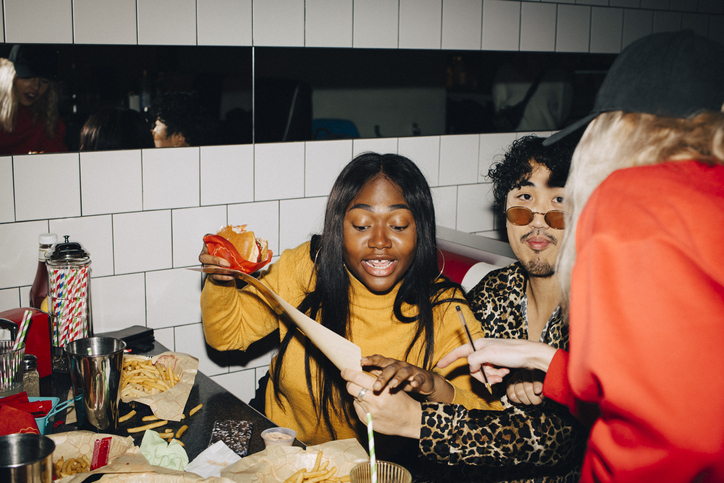
Source: Maskot / Getty
Making him feel like he’s ruining the fun
“Aaaaw come on. We’re all sharing a huge pizza. You’re just getting the grilled chicken? Part of the reason people come here is for the pizza. Why did you even come here if you’re not going to eat it?” Again, social engagements don’t need to be about food. Don’t make your partner feel that he isn’t thoroughly experiencing/enjoying something if he doesn’t eat what you’re eating.

Source: LaylaBird / Getty
Remember it’s for his health
It’s important to remember some of your partner’s motives when he’s trying to lose weight. This will help you understand that A) it’s not personal (he’s not doing it at you) and B) it actually benefits you. Your partner is trying to improve his health. Excess weight is at the root of many life-threatening conditions like heart disease and diabetes. Wouldn’t you rather have your partner around for many years, even if that means he eats differently than…the alternative?
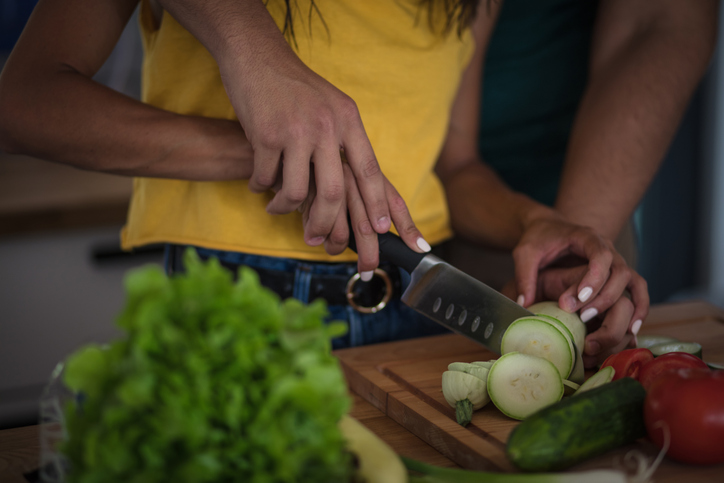
Source: Iconic / Getty
His new body won’t change your relationship
His getting in shape won’t change your relationship. Your bond is stronger than that. You connect over more than food. If his getting in shape does cause a rift between you two, that’s something to analyze closely. It could be a sign that there were preexisting issues in the relationship. It could be a sign that you’re pulling away. But, either way, your partner shouldn’t have to stay in poor health in order for you two to stay close.
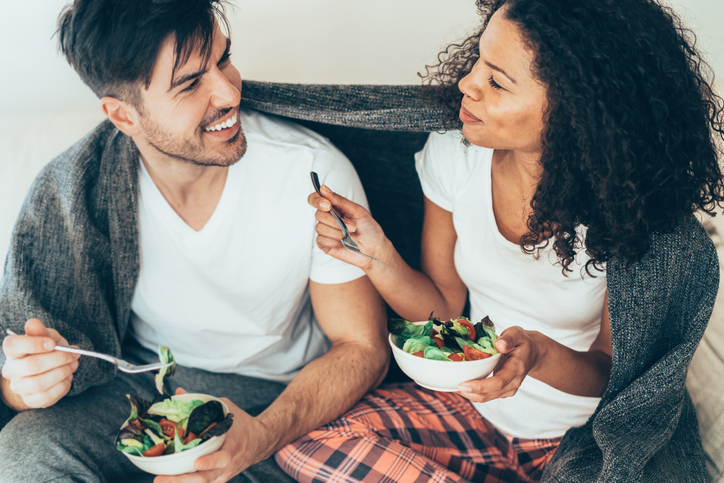
Source: filadendron / Getty
If you don’t support, you’ll push him away
Ultimately, if you don’t support his choice to get in better shape, you may push him away. If he feels uncomfortable eating around you, he might just choose to eat with others instead – others who support him. If he feels he can’t talk to you about his diet, he may stop talking to you. The diet isn’t what causes the distance: it’s your reaction to it that can cause a problem.







